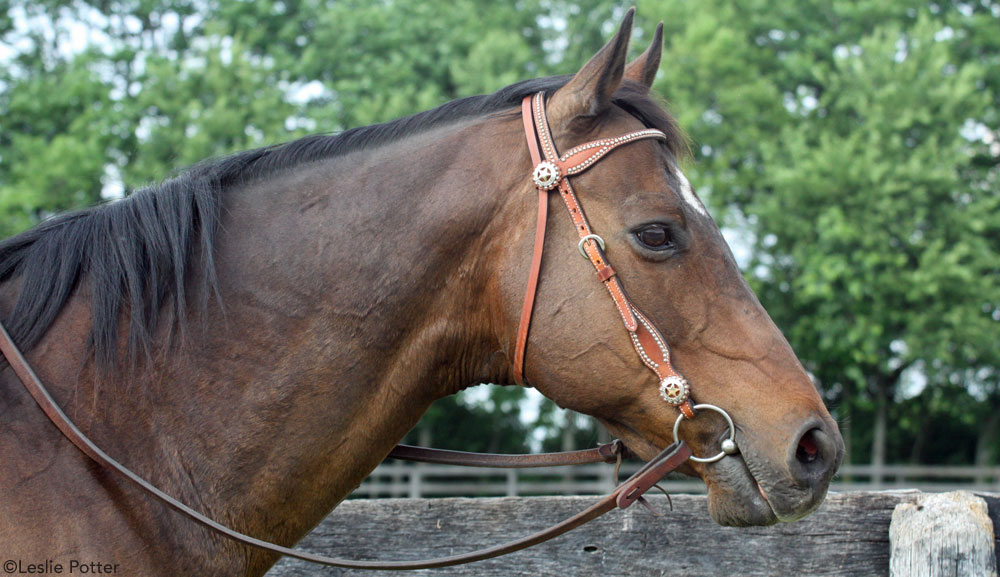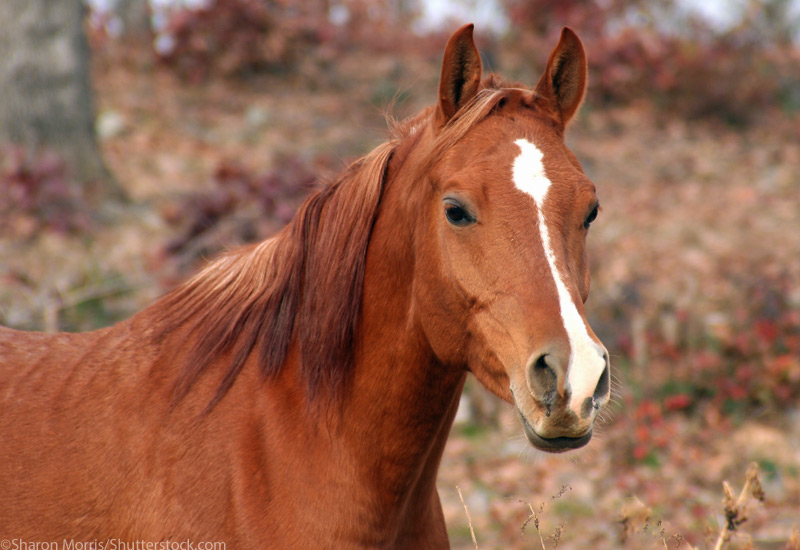
Wolf teeth are sometimes removed if they are positioned in a way that might cause discomfort or other problems when the horse wears a bit. Photo by Leslie Potter
Q: Is removing wolf teeth necessary? When should it be done?
A: “Wolf” teeth, the true first premolars, typically sit right next to the first large cheek teeth aka second premolars. They do not occur in every horse, may occur only on the top or bottom arcade (or only on the left or right), and may be present but not visible because they did not erupt through the gum (known then as “blind” wolf teeth). They typically erupt around 5 to 6 months of age.
Wolf teeth come in all shapes and sizes but are typically much smaller than any of the other teeth. When they are abnormally positioned and have the potential to cause bitting issues it may be recommended to have them extracted, but many performance horses do just fine with normal wolf teeth.
It used to be that we always removed wolf teeth in young horses before they were ever started or had a bridle in their mouth (commonly done in male horses at the time of castration). However, we’ve become less aggressive in this and other aspects of equine dentistry and now the thinking is: “if it ain’t broke, don’t fix it.”





